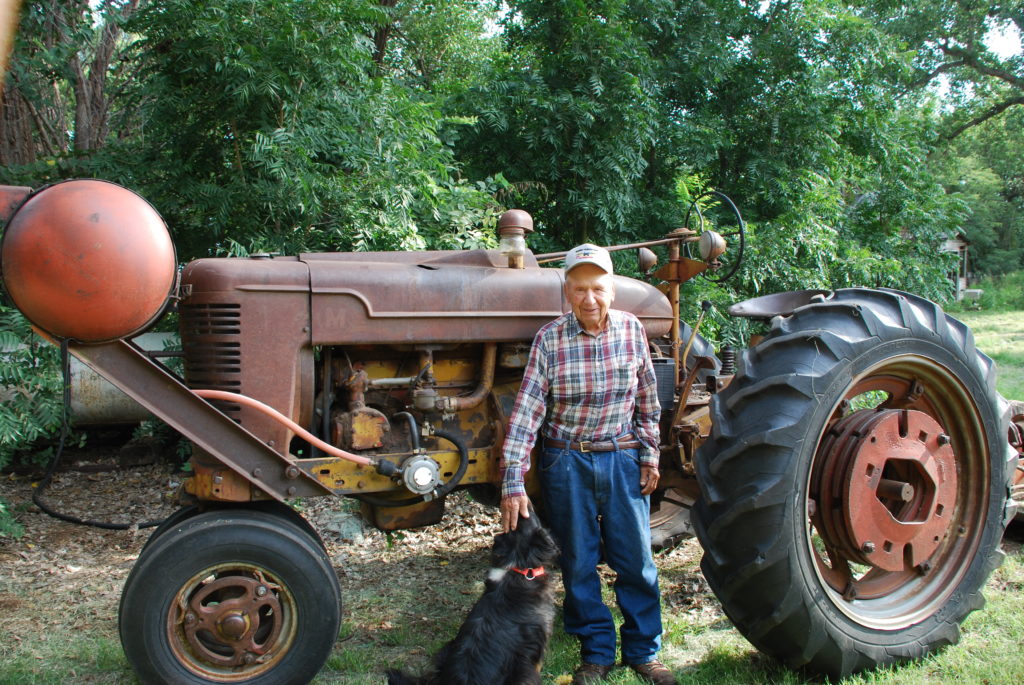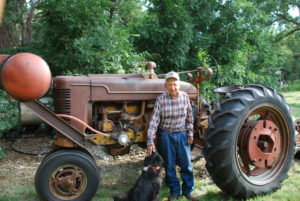By Tanya Finchum
Oklahoma State University
Alas for those that never sing, but die with all their music in them. (Oliver Wendell Holmes)
The Oklahoma 100 Year Life oral history project, a collaboration with a gerontology faculty member in the College of Human Sciences, took form in the spring of 2013 and concluded in February 2016. An aim of the project was to conduct interviews with Oklahoma’s centenarians to explore lived history “back when” as well as how their journeys affect life today. Over the course of three years, 111 Oklahomans over the age of 100 were interviewed, 68 females and 43 males.
The project had two phases. In the first phrase the faculty member would visit with the centenarian, conduct a series of exercises to evaluate cognitive status and validate age. Oral history interviews were then arranged with those who passed the cognitive and age benchmarks.
An abbreviated life history was recorded along with their memories of living through historical times such as attending rural one-room schoolhouses, traveling by horse and wagon, managing without running water, and living through the Great Depression, just to name a few. Early day farming practices were also discussed along with inventions that seemed to make life a little easier.
One interviewee remarked, “We used horses altogether, until them rubber tires come out, and boy when they come out, changed everything” (Harper, 16). At the time of his interview he was still farming and was still driving a 1949 tractor his brother “put in for” at the end of World War II. [insert photo here]
With several of the centenarians interviewed, consequential strangers and a little luck positively altered their journeys. One centenarian shared that at the age of 20 his brother-in-law talked him into traveling to Oklahoma City to try to land a job with a meat-packing company. He recalled, “I just went up there and stood on the line. That was back kindly in the end of the Depression…. I went out there Monday morning, Tuesday morning. That Wednesday I told my brother-in-law, I said, ‘Well, if I don’t get to go to work out there today, I’m going to catch the watermelon truck back home. Forget this stuff.’
“Well, there wasn’t but about 75 or 80 of us sitting out there on the curb wanting a job. [The] boss had a man on vacation and he needed somebody just for a couple of weeks. He come out there and picked me out of the bunch. He told me, he said, ‘I can use you for a couple of weeks, but,’ he said, ‘that’s all I can promise.’ …. So I went in and started working, driving a horse to a two-wheeled cart, cleaning up on the yard there” (McMahan, 7). Sitting on the curb those three days was a turning point in his life and he went on to work for that company for more than 43 years.
According to the United Nation’s World Population Ageing 2013 report, “The older population is itself ageing. Globally, the share of older persons aged 80 years or over (the “oldest old”) within the older population was 14 per cent in 2013 and is projected to reach 19 per cent in 2050. If this projection is realized, there will be 392 million persons aged 80 years or over by 2050, more than three times the present.”
Living longer does not always mean living well. One hope of this project was to gather data that other researchers could use to examine various aspects of living a 100-year-life, not just the historical events they may have witnessed, but how living through them affected their philosophy or approach to life. Early analysis suggests that finding a way to be content, to grieve briefly and move on and to have faith in a positive tomorrow potentially improve one’s chance of having a long-lived and well-lived life.
When working with this population it is important to keep in mind not to assume just because they are the oldest old that they are all alike and all infirm. In this project more than one-fourth continued to live independently in their own homes, and more than one-fourth resided with a child and required minimum assistance. Most were ambulatory with some continuing to drive themselves to the grocery store and church.
When setting up recording equipment be sure to inquire if hearing in one ear is better than the other. When asking questions, give them time to ponder the question and their answer. While long-term memory is often easier to recall, at 100 they have a lot of data to sift through.
Also do not be surprised if you get caught off guard with a humorous response. A case in point, we once posed the question, “What gets you up in the morning?” The response, “The alarm clock.” Humor has been a common thread through this collection of interviews and suggests even a little laughter can positively affect the “history” to come.
As interviews move through the transcribing and reviewing process, they are being made available through the project’s website www.library.okstate.edu/oralhistory/digital/100. When the project was initially planned, the goal was meeting a dozen Oklahomans who were 100 years or older but the people and stories were such that we changed our goal to 100 100s and finally had to draw the line at 111…for now, perhaps.

